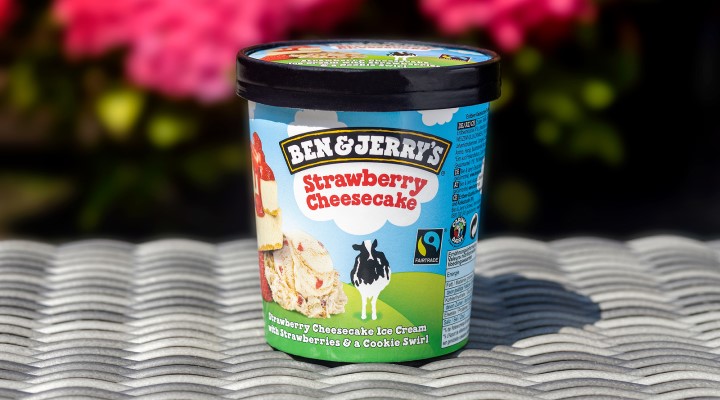All around the world, companies are applying for, and being granted, the famous B Corp certification to signal to consumers that they are serious about their commitment to sustainability and corporate governance. Over 750 companies across Australia and New Zealand are part of a network of 9000 B Corp companies worldwide with the right to emblazon their products with the distinctive ‘B’ logo. While the US-based movement seemingly sets a high bar for social and environmental standards, a
, a string of controversies over the years have left observers wondering if a B corp certification is simply another form of greenwashing.
What it takes to gain a B Corp designation
Since its founding in 2006, B Corp has attempted to pursue its mission of changing the way capitalism works by encouraging companies to prioritise social and environmental benefits as much as profit. B Corp certification is available to any company that applies to the not-for-profit offshoot B Lab and pays a fee for a three-year designation.
To gain the right to be labelled as a B Corp company, businesses must meet a minimum of 80 points out of 200 in a scoring system that ranks the business for its impact across several categories involving its treatment of its workers, community, environment and consumers. But what does it truly mean?
By now, there are thousands of brands sporting the B Corp labels, including Nestlé subsidiary Nespresso (Nestlé has a long track record of human rights breaches and environmental degradation); Etsy, which was flagged for tax avoidance; Unilever-owned Ben & Jerry’s and Natura brands Body Shop and Aesop.
Across industries and sectors, the B Corp label, which was once prized by early adopters has fast become yet another tool for companies to pay lip service to sustainability. Fundamentally, B Corp operates on an entirely voluntary basis – whether or not the certification has translated into actual positive outcomes for the environment remains to be seen.
The perks of being seen to give equal weight to people, planet and profit are certainly attractive at a time when consumers are actively looking to reward ethical businesses, but the reality is many businesses will do the bare minimum just to tick the CSR box.
Far from being a ‘force for good’, B Corp is taking the teeth out of forcing brands to proactively mitigate their negative impacts on the environment. A recent case in point is French advertising group Havas being stripped of its B Corp label after backlash ensued from its work with oil and gas giant Shell.
So much for the B Corp claims of meeting the “highest standard of verified social and environmental performance, public transparency, and legal accountability to balance profit and purpose”.
Legislation paves the way for meaningful environmental action
Over in the UK and EU, legislators have already stepped in to enshrine sustainability practices to hold businesses accountable for their environmental track record. EU Directive 2014/95/EU and UK laws relating to mandatory sustainability reporting requirements are but two examples of this kind of legislation.
Without legislation, companies can simply walk away from their responsibility to do no harm to the planet. Rather than perpetuating a system where a label can be paid for with no true mechanism for accountability, we should be pushing for external mechanisms to compel businesses to meet standards. It shouldn’t cost a business up to $50,000 to achieve certification, nor should it be left to businesses to pick and choose the criteria that apply to them in B Corp’s points-based system.
Meanwhile, news that just 57 per cent of companies are responsible for 80 per cent of the world’s CO2 emissions demonstrates the clearly urgent need for governments to step up and compel businesses to pass sustainable habits onto consumers. While calls for a bill that legislates B Corp standards in Australia have not yet come to fruition, expecting businesses to meet environmental protection standards voluntarily is an exercise in futility.
Consumers do play a key role in driving demand for sustainable goods and services but it shouldn’t be on them to navigate misleading labels or determine the true sustainability credentials of brands. The Australian Government could simplify this process by stepping in to enforce universal labelling standards in much the same way that nutritional labels are regulated on food packaging.
The government could also incentivise businesses to educate consumers on sustainable habits, from promoting the use of reusable products to switching to more energy-efficient appliances. FMCG brands and supermarkets would benefit from a level playing field in that a government-led B Corp certification would be more accessible to all, not just businesses with deep pockets. Consumers would also be much more likely to trust an independent, impartial certifier. A government certification would enable the FMCG sector and supermarkets to bank on increased consumer confidence from removing the incentive for businesses to purchase sustainability credentials for clout.
Finally, the government can compel businesses to increase transparency on their environmental and social footprint through mandatory reporting, which should be made accessible to all.
There is a huge gap in leadership and the time has come for the government to step up its game and lead the sustainability movement. As the climate crisis rages, we can no longer afford to leave the wellbeing of our planet in the hands of private entities through their voluntary efforts. For the good of our planet, we must call on legislators to introduce robust laws so that businesses’ profiteering and environmental protection goals are made to align.







